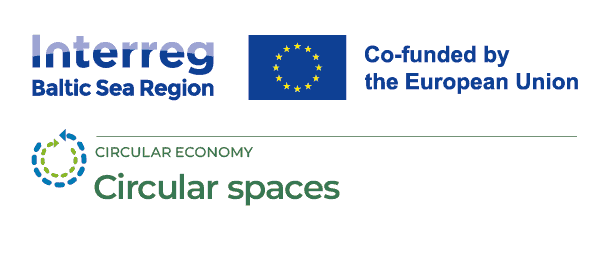
WCEF2024 Studio organised by project’s ‘Circular spaces’ consortium
18 April 2024
The main aim of the webinar was to introduce the concept of makerspace and how, through the activities of the Interreg Baltic Sea Region project ‘Circular spaces’, we will introduce circular economy principles in these makerspaces and how we will educate the visitors of the makerspaces. Speakers from Germany, Lithuania and Latvia dived deeper into the topic.
Makerspaces are places where prototypes and ideas for new businesses are developed. It is important that the principles of the circular economy are introduced right from the start. This not only reduces the company’s environmental impact, but also makes it more competitive. More and more customers are paying attention to what products an operator offers and whether the goods they buy are durable and recyclable.
The project provides an opportunity not only to develop concrete solutions to the defined problem, but also to cooperate with partners in other countries within the Baltic Sea Region. Cooperation with organisations and people experienced in different fields provides an opportunity to arrive at the best solutions, to learn from each other and to share the solutions developed in the project with a wider audience.
After the partner presentations, the webinar continued with the World Circular Economy Forum discussion “The people driving change today”. The discussion highlighted the importance of the role of people in implementing the circular economy. The discussion concluded that if consumers are educated about the circular economy and its principles, they will also start to demand products or services from producers that are designed according to these principles. The training program developed by the project ‘Circular Spaces’ is specifically aimed at strengthening people’s skills on the circular economy, both theoretically and practically.
The training program is available on the project website under “Solutions”.
Today, we mostly live in a linear economy based on a “take, make, consume, throw away” approach. The circular economy, on the other hand, is a production and consumption model that involves sharing, renting, reusing, repairing, refurbishing and recycling existing materials and products for as long as possible. This extends the life cycle of products.
In practice, this means minimising waste. When a product reaches the end of its useful life, it tries to return its materials to the economy as far as possible. They can be put to good use again and again, thus creating additional value.
The event took place in the framework of the World Circular Economy Forum and was organised by the Interreg Baltic Sea Region Programme project ‘Circular spaces’.





